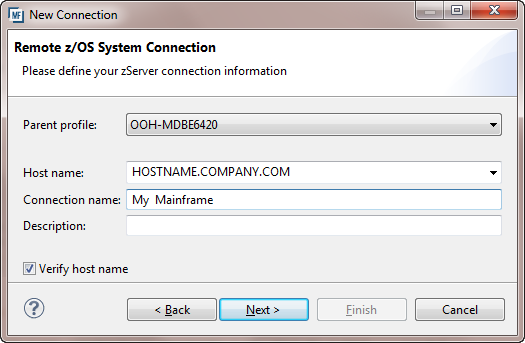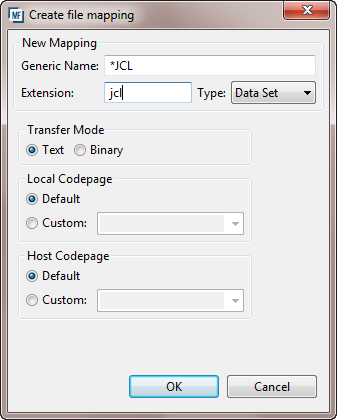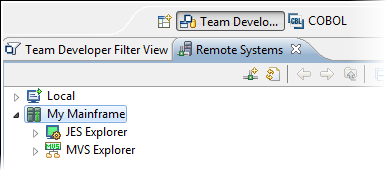Validating the Installation
After installation and customization, confirm the connection to the z/OS environment, via the z/Server software, is correctly configured. Also, create file mappings for certain types of file, to ensure they are executed correctly on the mainframe.
- Click .
- Open the workspace that was created during the Getting Started... tutorial.
- If the Team Developer perspective is not already displayed, click .
- Click the Remote Systems tab.
-
Create a remote system (mainframe) connection:
-
On the
Remote Systems tab, click
 , or right-click the
Remote Systems pane and choose
.
, or right-click the
Remote Systems pane and choose
.
- Select z/OS, then click Next.
- Enter the details of the mainframe that has z/Server installed.
- Enter the port number for the z/Server installation on the mainframe, and edit the default local and host codepages, as required.
- Click Finish.
-
On the
Remote Systems tab, click
- In the bottom pane, click the File Mappings tab.
- Right-click and choose Add Mapping, then create the following two file mappings:
- Right-click the Remote Systems pane and choose Connect. You are prompted to log on to the mainframe.
- Log on with your normal mainframe user ID and password. The MVS and JES Explorer entries are displayed in green to indicate you have logged on successfully.
- Right-click the Team Developer tree view and choose Add System.
- In the System Selection list, select the connection that you just defined, then click OK. The Team Developer tree view displays the available models, one of which is the Micro Focus BankDemo Tutorial model.
- Right-click Micro Focus BankDemo Tutorial and select Load Application. The tutorial's datasets are displayed.



